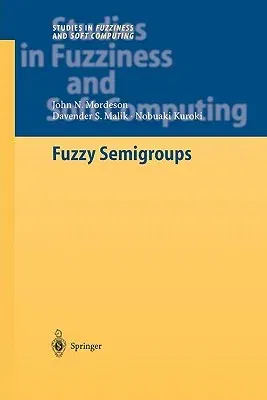Lotfi Zadeh introduced the notion of a fuzzy subset of a set in 1965.
Ris seminal paper has opened up new insights and applications in a wide
range of scientific fields. Azriel Rosenfeld used the notion of a fuzzy
subset to put forth cornerstone papers in several areas of mathematics,
among other discplines. Rosenfeld is the father of fuzzy abstract
algebra. Kuroki is re- sponsible for much of fuzzy ideal theory of
semigroups. Others who worked on fuzzy semigroup theory, such as Xie,
are mentioned in the bibliogra- phy. The purpose of this book is to
present an up to date account of fuzzy subsemigroups and fuzzy ideals of
a semigroup. We concentrate mainly on theoretical aspects, but we do
include applications. The applications are in the areas of fuzzy coding
theory, fuzzy finite state machines, and fuzzy languages. An extensive
account of fuzzy automata and fuzzy languages is given in [100].
Consequently, we only consider results in these areas that have not
appeared in [100] and that pertain to semigroups. In Chapter 1, we
review some basic results on fuzzy subsets, semigroups, codes, finite
state machines, and languages. The purpose of this chapter is to present
basic results that are needed in the remainder of the book. In Chapter
2, we introduce certain fuzzy ideals of a semigroup, namely, fuzzy
two-sided ideals, fuzzy bi-ideals, fuzzy interior ideals, fuzzy quasi-
ideals, and fuzzy generalized bi-ideals.


